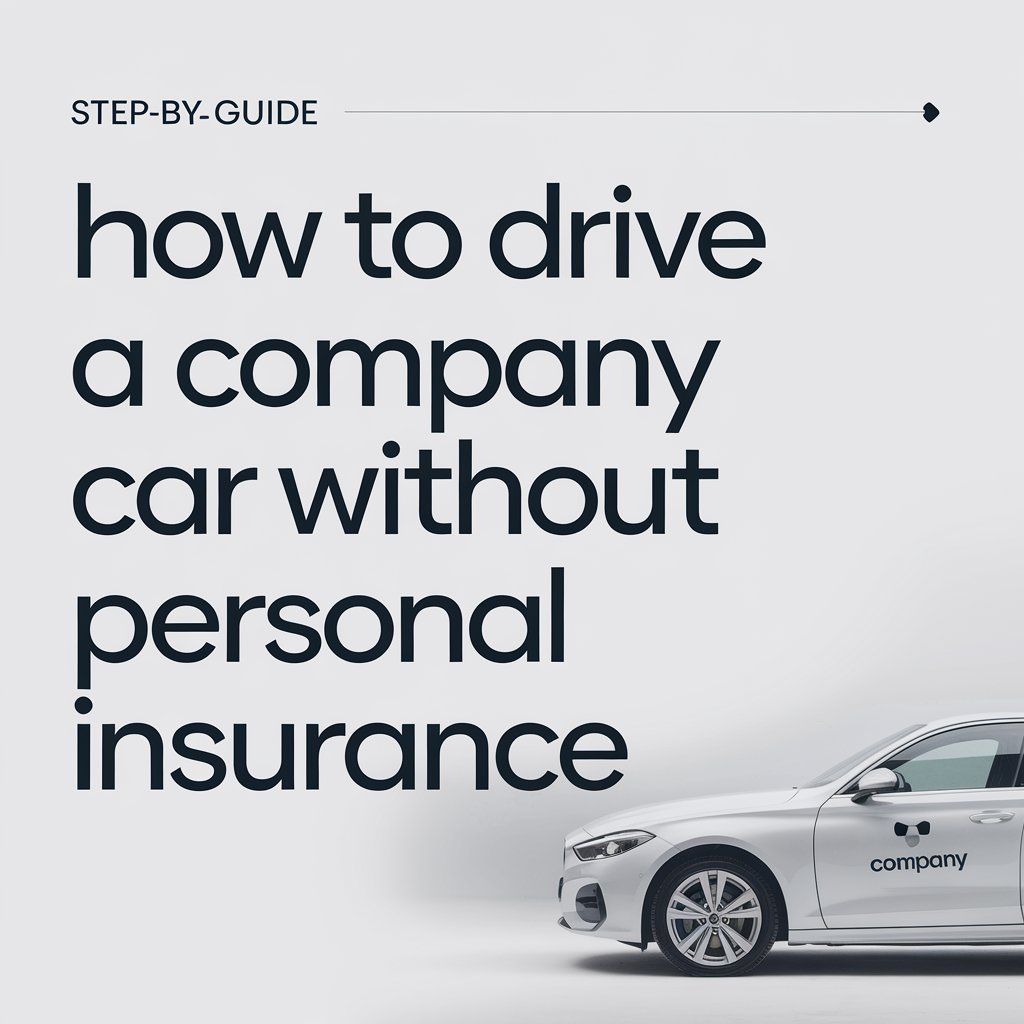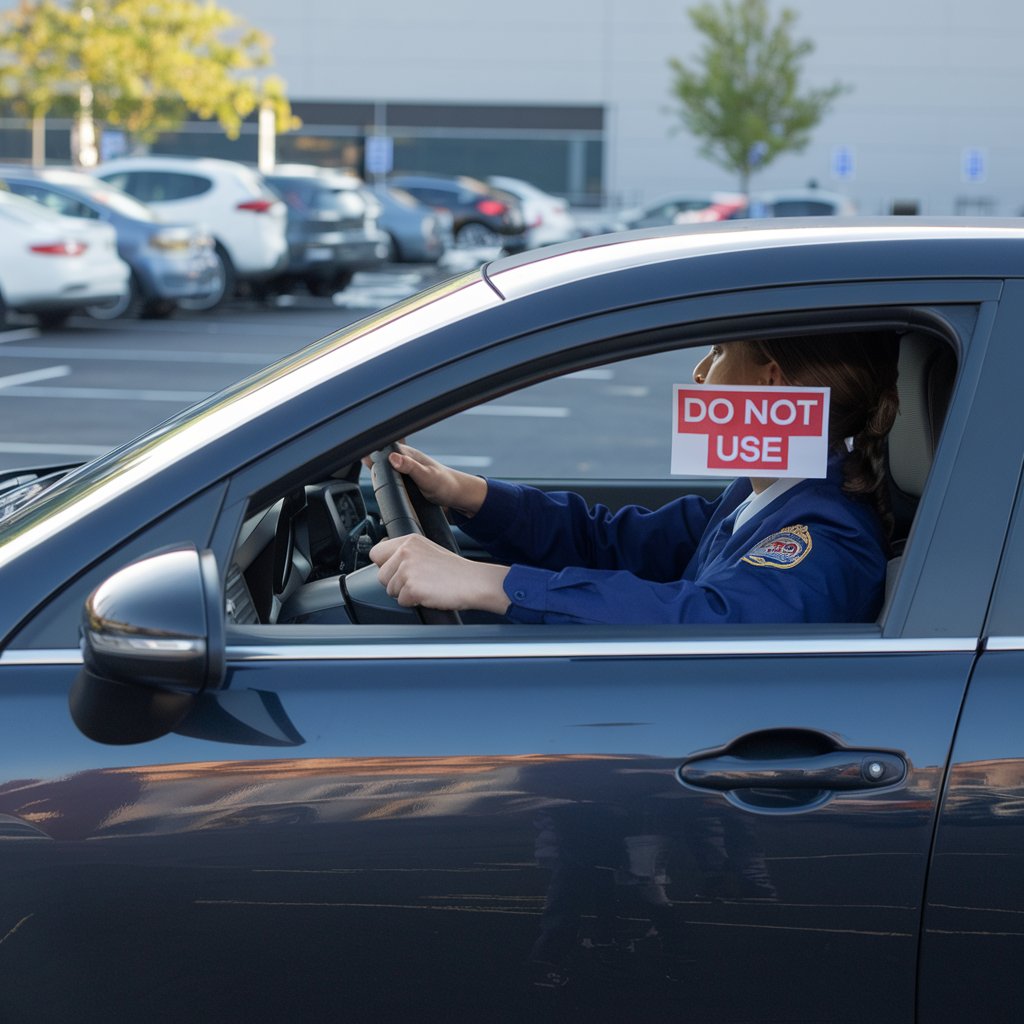Driving a company car without personal insurance can lead to serious issues. Many employees assume they are covered automatically, but that is not always true. If an accident happens, you might face unexpected costs or even legal trouble. Some companies provide full coverage, while others expect employees to have their own insurance. Not knowing the details can put you at financial risk. To stay protected, always check the company’s policy, understand what it covers, and take necessary steps to ensure you are legally and financially safe. This guide explains everything you need to know before getting behind the wheel.
Understanding Company Car Insurance
What is Company Car Insurance?
Company Car Insurance (Updated: March 2025)
Company car insurance is a policy that an employer buys. It covers vehicles used for business work. This insurance protects employees who drive company cars. The coverage depends on what the employer includes in the policy. Some policies cover accidents, theft, and damage. Others may only cover certain risks. Employers must choose the right policy to protect their business and workers. Employees should check what is covered before driving a company car.
Who is Covered Under Company Car Insurance?
Only authorized employees can drive company cars. Employers decide who gets permission. Some insurance policies allow family members to drive, but not all. It depends on the company’s rules and the insurance policy. Coverage is usually for business use only. If the car is used for personal reasons, the insurance may not apply. Employees should check the policy before letting anyone else drive. Using the car without permission can lead to problems.
Does Company Car Insurance Cover Personal Use?
Some company car insurance policies allow personal use. Others cover only business driving. Employees should ask their employer before using the car for personal errands. If personal use is not covered, insurance will not pay for damages in case of an accident. This can lead to high costs. In such cases, employees may need to buy extra insurance. It is important to understand the rules before using a company car outside of work.
Do You Need Your Own Insurance to Drive a Company Car?
When You May Not Need Personal Insurance
If the employer provides full coverage, employees may not need personal insurance. The policy usually includes liability, collision, and comprehensive coverage. It covers damage to the company car and claims from other people in an accident. However, coverage details vary by company. Some policies may have limits or exclusions. Employees should check with their employer to understand what is covered. If coverage is not complete, getting extra insurance may be necessary for full protection.
When You Might Need Your Own Insurance
You may need personal insurance in some cases. If the company policy does not cover personal use, you are not protected outside of work. Some employers require employees to have extra coverage. This helps in case of accidents. If you use your own car for work, company insurance may not apply. Personal insurance is needed to cover any damages or risks. Always check with your employer to understand the insurance rules before driving.
What If You Get Into an Accident?
If an accident happens while driving for work, the company’s insurance usually covers the damages. But if the accident happens during personal use, the employee may have to pay. Some employers also ask employees to pay a deductible before the insurance covers the rest. The amount depends on the company’s policy. It is important to check the rules before using a company car. Knowing the policy can help avoid unexpected costs after an accident.
Legal and Liability Considerations
Employer’s Liability for Accidents
Employers are usually responsible for accidents that happen during work. Their insurance covers damages and legal claims. But if the employee was careless, the employer may ask them to pay some costs. This can happen if the employee was speeding or breaking traffic laws. Liability coverage helps protect businesses from lawsuits. It pays for injuries or damages caused to others. Employees should always drive safely to avoid problems and extra costs for themselves or the company.
Employee’s Responsibility for Accidents
If an accident happens during unauthorized use, the employee may have to pay for damages. Company insurance may not cover personal or unapproved trips. Some employers have rules that make employees pay part of the repair costs. This can be expensive. Before driving a company car, employees should check the insurance policy. Understanding the rules can help avoid unexpected costs. Always follow company guidelines to stay protected while using a work vehicle.
Differences Between Personal and Company Car Insurance
Personal Auto Insurance vs. Company Car Insurance
Personal auto insurance covers a driver and their own car. It does not usually cover business use unless stated in the policy. Company car insurance covers vehicles owned by the business. It applies only when employees use them for work. If a personal car is used for business tasks, extra coverage may be needed. Employees should check both policies to avoid gaps in coverage. Understanding the difference helps prevent unexpected costs in case of an accident.
Commercial Auto Insurance Coverage
Company car insurance covers vehicles used for business work. It protects both the company and the employee in case of an accident. The policy usually includes liability, collision, and comprehensive coverage. Liability covers damages to others. Collision pays for repairs to the company car. Comprehensive covers theft, fire, and other damages. Coverage details depend on the employer’s policy. Employees should review the policy before driving to understand their protection and any possible risks.
Situations That May Require Additional Coverage
Driving a Company Car for Personal Use
If company car insurance does not cover personal use, the employee may need a non-owner policy. This type of insurance provides liability coverage when driving a car you do not own. It helps pay for damages if an accident happens. Employers may have different rules about personal use. Before using a company car outside of work, employees should check with their employer. Having the right coverage helps avoid unexpected costs and legal issues.
Using a Personal Car for Work
Personal auto insurance may not cover work-related driving. If you use your car for business, you may need extra coverage. A business-use endorsement or a commercial policy can provide protection. Without proper coverage, an accident may not be covered by insurance. Employees should inform their insurer if they use their car for work. This helps avoid gaps in coverage. Checking with both the employer and the insurance provider ensures the right protection.
Steps to Take Before Driving a Company Car
Check With Your Employer
Employees should ask if the company’s insurance covers all driving situations. Some policies may have limits. It is best to get written confirmation of the coverage details. This helps avoid confusion in case of an accident. Employees should also check if there are any restrictions on personal use. Some policies only cover business trips. Understanding the rules before driving a company car can prevent unexpected costs and legal issues. Always review the policy carefully.
Review the Company’s Insurance Policy
Employees should check if the policy includes liability, collision, and comprehensive coverage. Liability covers damages to others. Collision pays for repairs to the company car. Comprehensive covers theft, fire, and other damages. It is also important to check for deductibles. Some employers may require employees to pay part of the repair costs. Confirm if additional coverage is needed, especially for personal use. Understanding the policy details helps avoid unexpected expenses after an accident.

Consider Non-Owner Insurance
If you do not own a car but drive a company vehicle, a non-owner policy can help. It provides liability coverage for damages and injuries caused in an accident. This type of insurance is useful for employees who drive different company cars. It protects against costs that the company’s policy may not cover. Employees should check with their employer and insurer to see if they need this extra coverage. Having the right insurance prevents financial risks.
FAQs
Can I Drive a Company Car for Personal Use?
It depends on the employer’s policy. Check the insurance coverage before using it for personal trips.
Who Pays for Damages If I Crash a Company Car?
If driving for work, company insurance usually pays. If used personally, the employee may be responsible.
Do I Need Insurance If I Drive a Company Car?
If the company provides full coverage, you may not need personal insurance. Check the policy to confirm coverage details.
What Happens If I Get a Ticket While Driving a Company Car?
The employee is usually responsible for paying the ticket. Employers may take further action based on company policies.
Conclusion
Driving a company car comes with rules and responsibilities. Insurance coverage depends on the employer’s policy. Some policies allow personal use, while others do not. If an accident happens, company insurance may cover damages, but not always. Employees should check the policy before driving. If extra coverage is needed, a non-owner policy can help. Tickets and violations are usually the driver’s responsibility. Understanding the rules helps avoid problems. Always follow company guidelines to stay protected and avoid unexpected costs.
